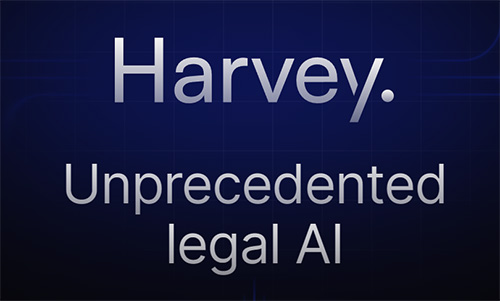
Top Legal-Specific AI Tools for Law Firms to Boost Efficiency & Improve Accuracy
The smartest law firms aren’t waiting for the future — they’re building it.
Table Of Content
Artificial intelligence isn’t a theoretical tool for the legal industry anymore — it’s an essential competitive advantage. In 2025, AI is reshaping how legal professionals work, from contract analysis and compliance to litigation strategy and legal research. The firms that thrive aren’t just practicing law — they’re innovating it.
But with a flood of new platforms promising results, how do you separate the hype from what actually helps? Let’s explore the top AI tools built specifically for legal professionals — and how they’re transforming law firms right now.
⚖️ Why Legal AI Tools Matter
Legal work has always demanded precision, efficiency, and deep thinking. But traditional methods are being stretched thin under modern pressures:
- Growing client expectations
- Tighter deadlines
- More complex regulations
- Globalization of law
AI bridges the gap, helping lawyers accomplish more in less time — without compromising quality or ethics.
“AI won’t replace lawyers. But lawyers who use AI will replace those who don’t.”
— Richard Susskind, Legal Futurist
✅ Comparison Table: Legal AI Tools at a Glance
| Tool | Best for | Key Benefit | Firm Size Fit |
|---|---|---|---|
| Harvey AI | Legal research, drafting | Fast, accurate research memos | Midsize to large firms |
| Kira Systems | Contract analysis | Fast clause extraction | All sizes |
| Casetext CoCounsel | Litigation support | AI-powered writing & analysis | Solo to large firms |
| ROSS Intelligence | Legal research (returning) | Natural language search | All sizes |
| Luminance | Regulatory review | Data-heavy compliance cases | Large firms |
| Lawgeex | Contract review | Risk identification & guidance | In-house legal teams |
🧠 1. Harvey AI

Use it for: Legal research, memo drafting, document summarization
Built on OpenAI’s legal-specific infrastructure, Harvey is quickly becoming the go-to platform for law firms seeking powerful, secure AI assistance. It can digest lengthy case law, generate memos, and answer legal queries with context-aware accuracy.
Key features:
- Conversational legal research
- Drafting assistance (motions, memos, emails)
- GDPR and HIPAA compliance
- Integrates with leading legal tech systems
“Harvey is like having a sharp junior associate available 24/7 — with no coffee breaks or burnout.”
📄 2. Kira Systems

Use it for: Contract analysis, M&A due diligence, compliance review
Kira is the gold standard in AI-powered document analysis. It helps legal teams find, compare, and interpret key clauses across thousands of contracts — in minutes, not weeks.
Key features:
- Built-in legal clause libraries
- Custom clause detection
- Supports 40+ languages
- Highly secure enterprise environment
Perfect for transactional attorneys and corporate legal teams handling complex, large-scale document reviews.
🔍 3. Casetext CoCounsel

Use it for: Litigation support, document review, legal writing
CoCounsel functions like a virtual litigation partner — helping lawyers analyze cases, generate arguments, and streamline document prep. Developed by legal professionals, it’s trusted by thousands of litigators.
Key features:
- Real-time memo generation
- Case strategy modeling
- Integrated legal fact-checking
- Secure knowledge capture for firms
“Casetext doesn’t just speed up your process — it enhances your judgment.”
📚 4. ROSS Intelligence (Returning Soon)

Use it for: Legal research powered by conversational AI
Once a leader in AI-based legal search, ROSS is expected to return with advanced capabilities. Its promise lies in natural language queries that retrieve legal insight with unmatched speed and simplicity.
Expected features:
- Ask legal questions in plain English
- Instant case law retrieval
- Contextual summarization
- Designed for lawyers, not data scientists
Keep this on your radar — it’s poised for a strong comeback in 2025.
📊 5. Luminance

Use it for: Large-scale compliance, cross-border document review
Built for firms handling high-volume regulatory work, Luminance uses deep learning to analyze structured and unstructured legal data. Its visual dashboards make sense of patterns in M&A, litigation, and audit scenarios.
Key features:
- Anomaly detection in legal language
- AI-driven document clustering
- Supports multi-jurisdictional compliance
- Highly visual, intuitive dashboards
“Luminance helps lawyers see the forest and the trees.”
📁 6. Lawgeex

Use it for: Contract review automation for in-house counsel
In-house legal teams love Lawgeex for its fast, policy-driven contract analysis. It flags risks, benchmarks clauses, and suggests edits aligned with company guidelines.
Key features:
- Contracts reviewed in hours, not days
- Highlights risky language and suggests alternatives
- Seamless Microsoft Word integration
- Built-in legal playbook customization
Ideal for vendor agreements, NDAs, and high-volume contract pipelines.
🚀 Final Thoughts: Modernize Without Compromise
Adopting legal AI isn’t about abandoning craftsmanship — it’s about enhancing it. These tools empower lawyers to spend less time on manual research and repetitive tasks, and more time on what matters most: strategy, relationships, and results.
Whether you’re a solo practitioner or leading a global firm, AI is no longer optional — it’s your key to thriving in a digital-first legal landscape.
“The law may be centuries old, but the way we practice it shouldn’t be.”
— Anonymous tech-forward litigator


